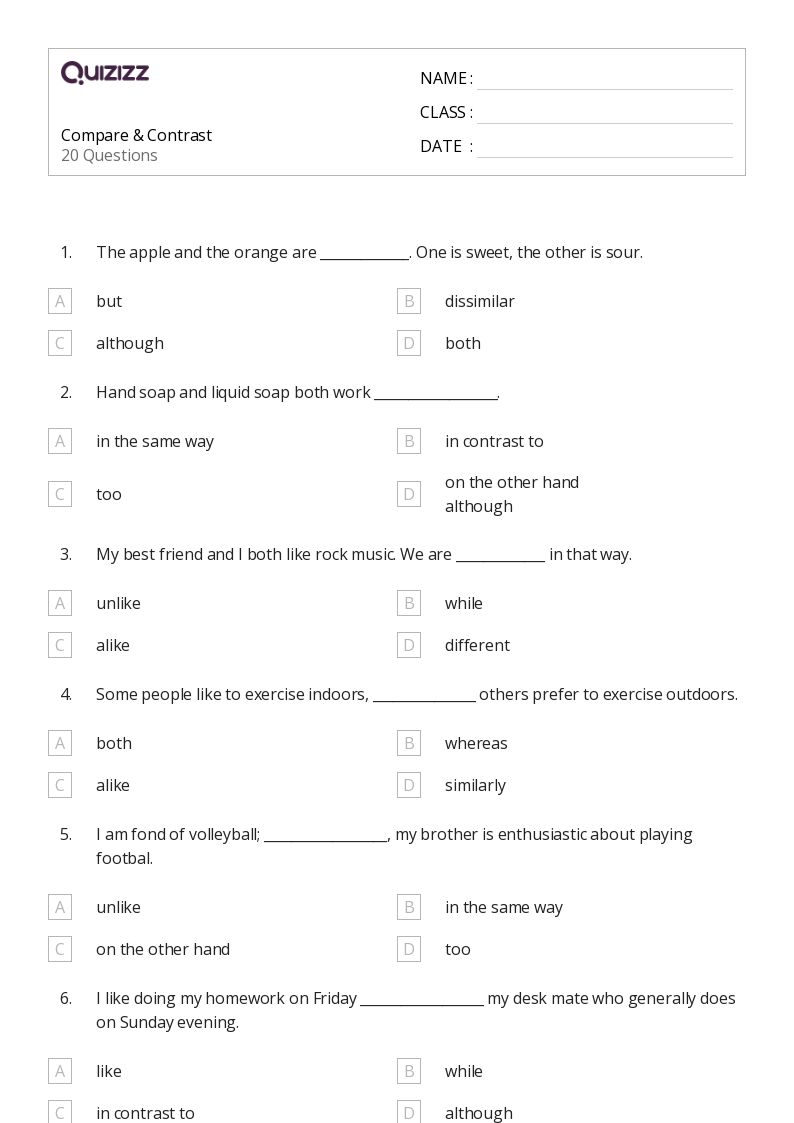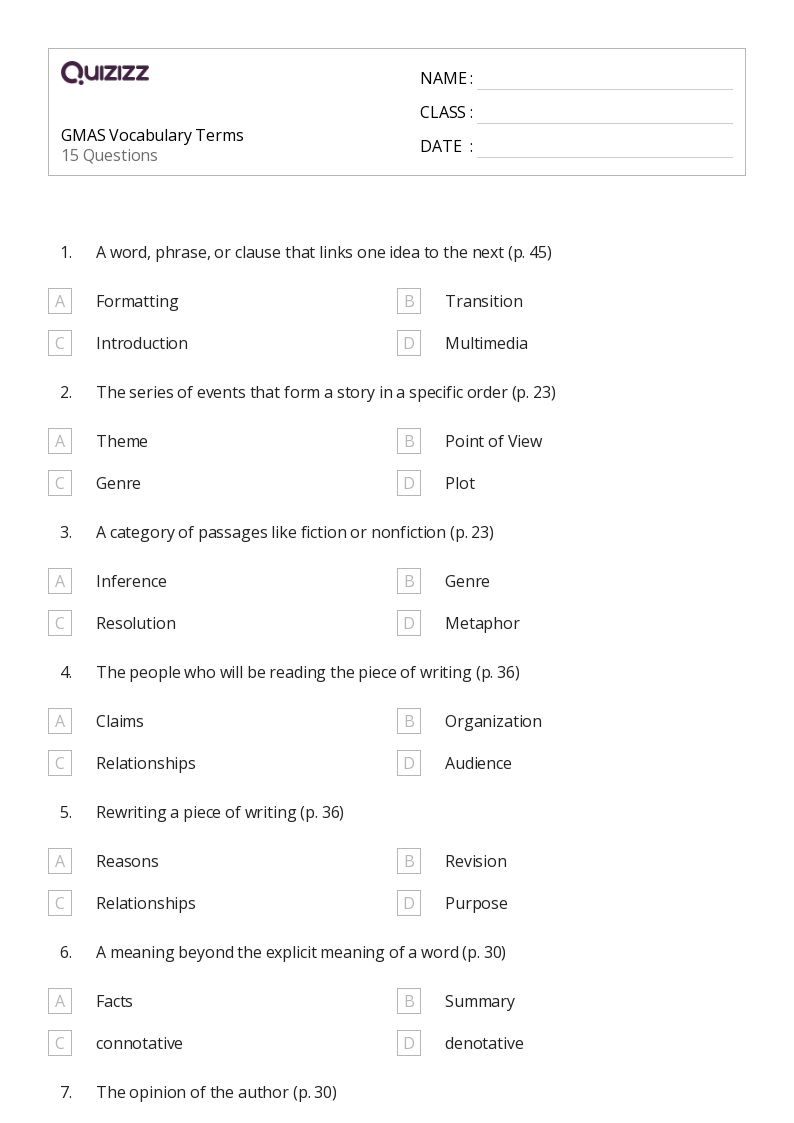
10 Q
6th - 8th

6 Q
6th - 8th

9 Q
6th - 8th

20 Q
6th - 8th

6 Q
6th

20 Q
6th

15 Q
6th

20 Q
5th - 6th

14 Q
6th

15 Q
6th

15 Q
6th - 8th

14 Q
6th

16 Q
6th

15 Q
6th - 8th

10 Q
5th - 6th

12 Q
6th

10 Q
6th

20 Q
6th - 7th

20 Q
5th - 6th

15 Q
6th - 7th

10 Q
6th - 12th

10 Q
4th - 6th

11 Q
6th
Explore Comparing and Contrasting in Nonfiction Worksheets by Grades
Explore Other Subject Worksheets for class 6
Explore printable Comparing and Contrasting in Nonfiction worksheets for 6th Class
Comparing and Contrasting in Nonfiction worksheets for Class 6 are essential tools for teachers looking to enhance their students' reading and writing skills. These worksheets are designed to help students develop critical thinking and reading comprehension strategies by analyzing similarities and differences between nonfiction texts. As a teacher, you understand the importance of incorporating engaging and interactive activities into your lesson plans. By using these worksheets, you can provide your Class 6 students with the opportunity to practice their reading skills while also learning how to effectively compare and contrast various nonfiction texts. This will not only improve their overall reading abilities but also help them become more proficient in understanding and analyzing complex information. Comparing and Contrasting in Nonfiction worksheets for Class 6 are an excellent addition to any teacher's curriculum.
Quizizz is an innovative platform that offers a wide range of educational resources, including Comparing and Contrasting in Nonfiction worksheets for Class 6. Teachers can utilize Quizizz to create engaging and interactive quizzes, games, and activities that will help their students develop essential reading comprehension strategies. By incorporating Quizizz into your lesson plans, you can provide your Class 6 students with a fun and effective way to practice comparing and contrasting nonfiction texts. In addition to worksheets, Quizizz offers various other resources to support reading and writing instruction, such as flashcards, discussion prompts, and multimedia content. As a teacher, you can easily customize and adapt these resources to meet the unique needs of your students, ensuring that they receive the best possible education in reading comprehension and critical thinking skills.
